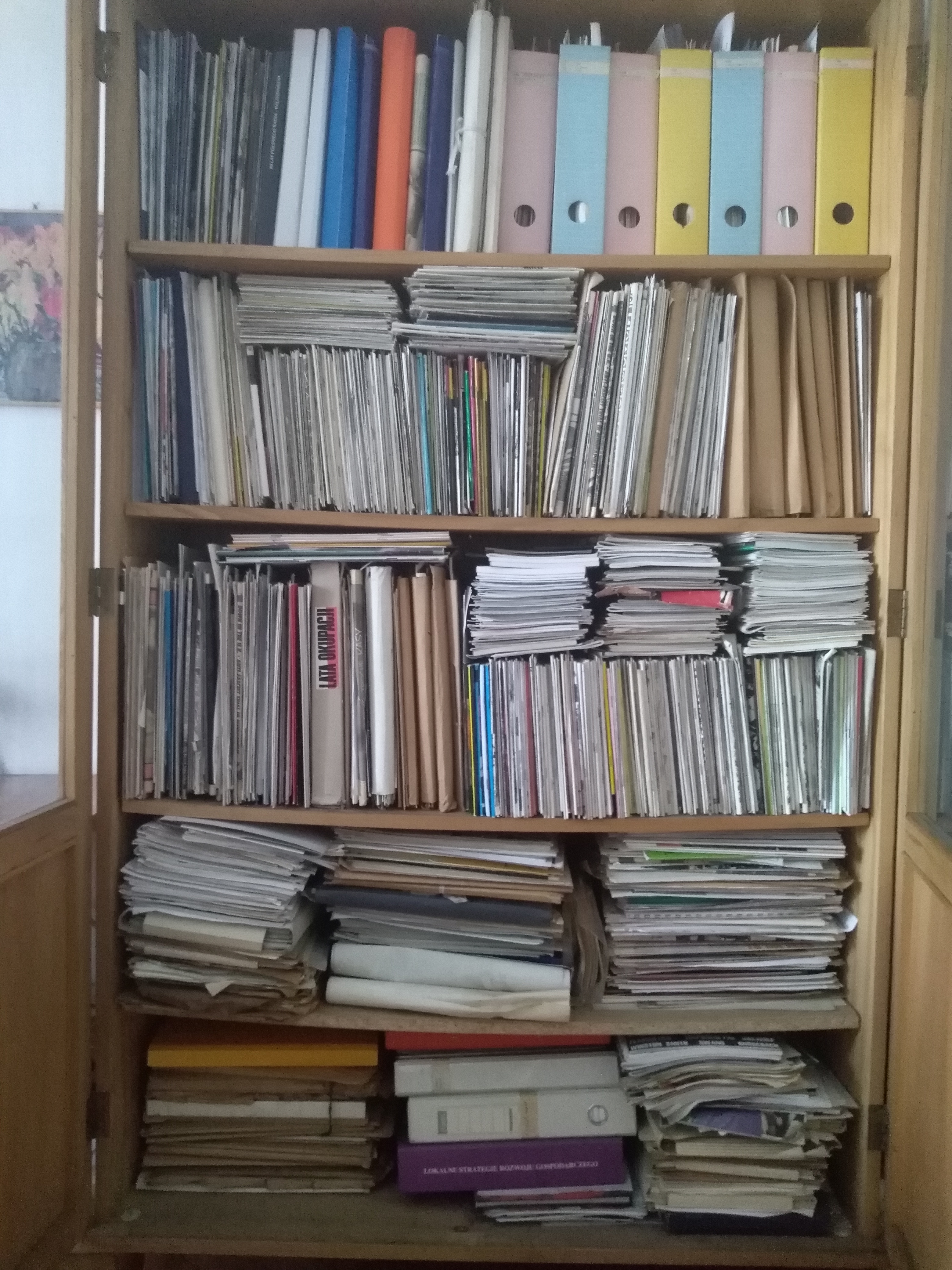Creation of a private archive of prof. Barbara Fatyga is related to her work in the Institute of Youth Problems Research since the late 1980s. Fatyga was a young researcher, interested in lifestyles and theory of culture, when in 1986 she joined the government-related institute (directly subjected to one of the Committees of state central administration). Initially, she studied memoires of young farmers. In 1988 she started to gather a broader knowledge on youth issues, since she was asked by prof. Jadwiga Siemaszko, Jakub Wygnański and prof. Paweł Czartoryski to prepare some materials for the Round Table talks (there were several sub-tables where particular issues were discussed). Soon she started to research youth culture in a broader way. In the 1980s youth was a hot topic, researched by many scholars. The second half of the 1980s was marked with an eruption of youth and student movements, colourful subcultures, as well as moral panic related to an unusual behaviour of young people. A part of Fatyga’s research were the seminars where members of youth organisations and subcultures were invited.
The Institute of Youth Problems Reaserch employed two different group of workers: party and army officials (who found comfortable jobs there), and sociologist, psychologists and other researchers who enjoyed freedom within their researcher – without theoretical and methodical restrictions. This was possible because authorities needed fair and reliable knowledge about the youth circles in Poland. Moreover, among the researchers there were rebellious figures who could not find work on the universities due to political reasons. Despite fundamental differences between the workers, in 1989 they fought together to save the Institute. The most active members, apart from Fatyga, were Małgorzata Adamska and Andrzej Andruszkiewicz. They thought about establishing a foundation, but after all managed to found a Youth Research Centre (OBM –
Ośrodek Badań Młodzieży) in 1991. Centre was created thanks to the activity of professors Hanna Świda-Ziemba and Jacek Kurczewski from the Institute of Applied Social Sciences at the Warsaw University – where the research institution was established. After two years it was possible to reactivate research projects on youth culture.
Soon Fatyga became a head of the Youth Research Centre and she also managed a specialisation path (“Anthropology of modernity – animation of local activities”). This enabled her to intensify youth culture research. Fatyga included in the projects her own students – many of them were members of various subcultures. Their knowledge and insight enabled Fatyga to quickly access the environment of skinheads, punks, anarchists, metal fans etc. Some of the students who proved to be especially helpful were Tomasz Karoń, Przemysław Zieliński and Marek Rau. An almost 10-years-long research was conducted with no funds, thanks to the common effort of Fatyga, her co-workers and students.
Due to the specificity of a research project, materials gathered in the archive may be divided into three categories. First of all, there are recordings and transcripts of the narrative biographical interviews, which were the basic research method. Secondly, there are thousands of youth zines, leaflets, stamps, cassettes and other objects (mostly prints), gathered by Fatyga and her collaborators despite the ideological and aesthetic differences between particular groups. Lastly, the archive contains documentation on press discourse and other publications regarding the youth. Though materials were collected mostly in the 1990s, many of them come from the previous decade. The book Savages From Our Street. Anthropology of Youth Culture from 1999 (Fatyga’s habilitation), was a summary of the vast research. After publication, the archive ceased to grow fast, however some students were still bringing Fatyga interesting items for her collection.
The archive is situated in prof. Fatyga’s office in the Institute of Applied Social Sciences (Warsaw University). It requires organisation and in the future – digitalisation (since the materials are unique and may be easily destroyed). The collection is an exquisite source of knowledge about the generation which – according to Fatyga – was left alone. As these young people were neglected by older generations – claims Fatyga – they started to raise themselves and developed self-education practices.

